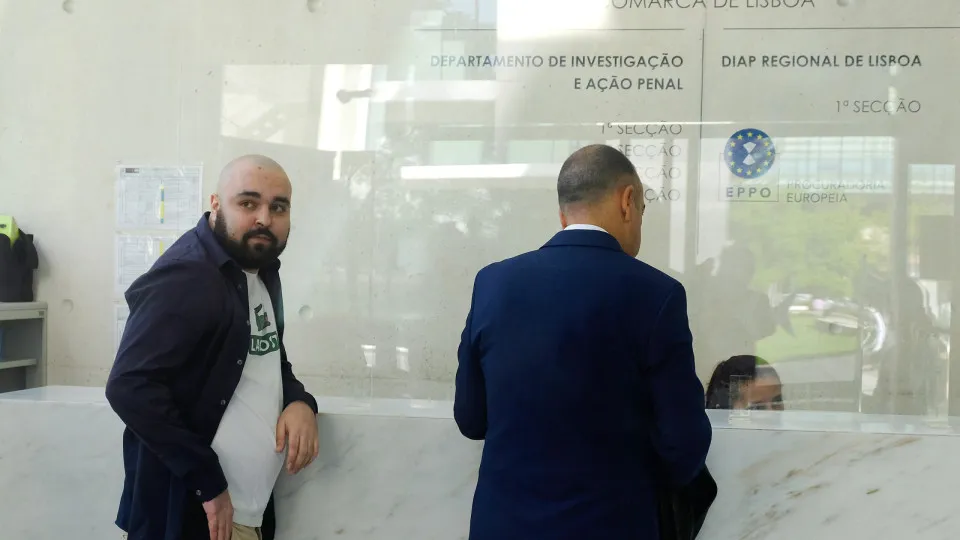
The proposed measures include the creation of an annual subsidy to stimulate internal travel, tax relief for beverages, the investment of unexecuted funds from the Recovery and Resilience Plan (PRR), and an end to rent freezes.
These are the proposals put forth by business associations for the OE2026, expected to be presented on Friday:
Tourism
The tourism sector seeks primarily measures to boost the industry, calling also for fiscal and training-related initiatives.
The Portuguese Association of Travel and Tourism Agencies (APAVT) proposes that the OE2026 includes the creation of a protection fund to safeguard consumers and agencies in case of airline bankruptcies.
According to its president, Pedro Costa Ferreira, this mechanism aims “to ensure the refund of unused tickets and guarantee passenger repatriation, reinforcing confidence in the sector and promoting greater security for all travelers.” It would be “financed by mandatory contributions from airlines operating in Portugal” and managed by “a public entity.”
The APAVT president also warned, “Without an airport solution in Lisbon, Portugal risks losing competitiveness compared to other Mediterranean destinations.”
Finally, he stressed, “The OE2026 should support digitalization, technological empowerment, and new financial instruments, ensuring that Portuguese companies can compete fairly in a global market.”
Meanwhile, the National Association of Travel Agencies (ANAV) wants the OE2026 to create an annual subsidy of 50 million euros to spur internal travel through agencies, as stated by the association in a statement regarding ten proposals evaluated at about 146 million euros.
ANAV also proposes various tax measures: a “120% tax benefit for corporate tax on investment in management software, digital platforms, artificial intelligence, and cybersecurity,” estimated to have an impact of 20 million euros; a reduced rate of 13% on tourist intermediation commissions (currently 23%), estimated to impact 15 million euros; elimination of double taxation in transportation and updated taxation in other aspects of agency activities, estimated to impact 10 million euros annually.
Moreover, they request an annual support line of 5 million euros for participation in international fairs and external promotion and the creation of a national voucher program for young people (ages 18 to 23), allocating 150 euros each for use in agencies registered in the national registry, a measure with an estimated impact of 30 million euros.
ANAV also proposes 4 million euros per year for certified training in tourism, legislation, sustainability, and digital technologies and an annual fund of 3 million euros to support environmental certification, carbon compensation, and awareness campaigns.
Finally, the association requests a credit line of 50 million euros, subsidized interest rates (maximum spread of 1.5%), and an 80% mutual guarantee, along with an exemption from the Social Security Tax for two years for hiring graduates or reskilling professionals, with an impact of 7 million euros annually.
Beverages, Restaurants, and Accommodation
The beverage sector advocates for tax measures that reduce the tax burden on these products. The hospitality and lodging sectors call for a 50% VAT deduction on accommodation and meal expenses.
The Association of Wine and Spirits of Portugal (Acibev) wants the tax exemption applied to wine to remain in the OE2026 proposal, as has been the case in previous years, with Executive Director Ana Isabel Alves arguing that the sale of wine, along with sparkling wines, should continue to be exempt from Alcoholic and Non-Alcoholic Beverage Tax (IABA).
Currently, wine sales have a VAT rate of 13%, and sparkling wine sales have a VAT rate of 23%.
For spirits such as brandy, Port wine, Madeira wine, and Muscat wine, Ana Isabel Alves believes that the current tax rates should not be increased in 2026.
The Acibev Executive Director also advocated for a reduction in the tax burden on all companies, including those in the beverage sector, in terms of Corporate Income Tax (IRC) and municipal and state surcharges.
The Portuguese Hospitality, Restaurant, and Similar Association (Ahresp), on the other hand, argues that soft drinks and alcoholic beverages should enjoy the intermediate VAT rate (Value Added Tax), thereby making this measure applicable to all beverages.
Moreover, Ahresp calls for a 50% VAT deduction on accommodation and meal expenses “incurred by IRC taxpayers and IRS taxpayers with organized accounting, regardless of their purpose.”
This is in addition to a 100% VAT deduction on meal and accommodation expenses related to event organization.
Ahresp also requests that the contribution on single-use packaging not be applied to ‘drive-thru’ regimes, since the customer buys the product without leaving the car, and in ‘delivery’, given that the order is made remotely and delivered by couriers.
For the association, the IRC rate should also be revised downward to guarantee the competitiveness of Portuguese companies vis-à-vis foreign ones, it argued.
The same should happen with the IRS tax brackets, “to correspond to the recent downward revision of withholding tax tables.”
Among the 30 measures proposed by the association are also tax benefits for investment, the downward revision of autonomous taxation, and the increase of the maximum annual turnover limit for VAT exemption from 15,000 to 50,000 euros.
To combat the housing crisis, Ahresp proposes reducing taxation on rental income, currently at 25%, exemption from IRS and Social Security Taxation in support of housing rents for employees, and tax benefits on the construction of housing for employees.
The hospitality and restaurant association also wants a current account system implemented between individual taxpayers and companies and Social Security, allowing credits to be used to settle debts with this institute.
Regarding company capitalization, Ahresp demands support for individual entrepreneurs to establish a commercial company and support instruments, recalling that those provided by the Development Bank have not benefited micro and small enterprises.
Distribution
The distribution sector’s priorities for OE2026 include fiscal relief and simplification.
The Portuguese Distribution Companies Association (APED) wants to seriously discuss the effects of the Additional Food Safety Levy (TSAM), charged to retailers and which “has earned the State millions of euros.”
These amounts, according to the distribution sector, should be allocated to capacitating these agents in food safety.
APED also hopes that the government advances with fiscal and administrative simplification and considers the inclusion of new measures to facilitate tax obligations.
On the other hand, APED is calling for the resumption of the topic of commission regulation applied to the acceptance of meal cards/vouchers, demanding the definition of a maximum total price to be charged, for the acceptance of these cards and vouchers, to merchants.
The distribution sector also seeks the adoption of a reduced VAT (Value Added Tax) rate of 6% for repair services of electrical, electronic equipment, and parts used in repairs.
Finally, they request that “the value of donations be excluded from taxable income for corporate income tax and other taxes,” that the concept of redistribution to needy people be clarified for VAT code application purposes, and that the limits associated with annual sales volume that condition the increase of IRC costs with donations be reevaluated.
Metallurgical and Metalworking Industry
The metallurgical and metalworking industry believes that OE2026 should include measures to utilize unexecuted Recovery and Resilience Plan (PRR) funds.
Rafael Campos Pereira, the Executive Vice President of the Metalworking, Metallurgical, and Related Industries Association of Portugal, emphasized the importance of simplifying and streamlining the norms and processes related to industrial licensing and highlighted the new role and instruments of action announced by the Development Bank, asserting that it is “important for them to reach the companies quickly and efficiently.”
Meanwhile, the Portuguese Aluminum Association (APAL) calls for incentives for the aluminum recycling industry and measures promoting this practice.
APAL also demands professional training for workers in this industry and a “comprehensive energy plan applicable to all associated companies,” he told Lusa.
Automotive
Fiscal changes and scrap incentives are among the primary measures several automotive sector associations would like to see included in OE2026.
In a survey by Lusa, the Automobile Association of Portugal (ACAP) requested a review of the 2007 fiscal reform and proposed the progressive transfer of the acquisition tax (ISV) to the circulation tax (IUC), “until the total extinction of ISV” by the end of 2030.
In calculating these taxes, ACAP suggests altering the tax base, “reducing the emphasis on displacement and increasing the emphasis” on carbon dioxide (CO2) emissions. The association also requested a 10% reduction in autonomous tax rates next year.
This stance was also defended by the National Association of Automotive Commerce and Repair Companies (ANECRA), which suggested “a global review of the main taxes” affecting the sector: IUC, ISV, VAT, and tax on oil products (ISP).
ANECRA also warned about the financial burden the IUC payment proposal for 2026 might place on car dealers, stating that focusing on one or two specific months (February or both February and October) “will require additional financial effort from dealers, which will have direct effects on company liquidity.”
Regarding taxation, the National Automobile Industry Association (ARAN) suggested reducing ISV, increasing the deductible percentage on IRS for VAT paid on maintenance and repair expenses, and excluding, in autonomous taxation, the expenses companies incur on vehicle maintenance and repair.
In addition to advocating for a professional register of car dealers, ARAN requested incentives for the renewal of the vehicle fleet, a position shared with ANECRA and ACAP.
All three also point out the need for a scrapping incentive to address the average age of 14 years of the Portuguese vehicle fleet — “one of the oldest in Europe.”
ACAP’s proposal calls for a new program with clear criteria to include, initially, electric or electrified lightweight vehicles with first registration in Portugal and acquired through any financing method, and subsequently, combustion vehicles registered in Portugal for over 10 years, potentially reaching 5,000 euros for vehicles that are 100% electric.
Additionally, the Auto Manufacturers Association (AFIA) argued that the OE2026 should focus on competitiveness.
The association told Lusa that there should be an investment stimulus for modernization and to meet environmental needs, along with support for capitalization processes.
Housing
Homeowners seek fiscal measures and support for needy tenants, as well as an end to rent freezes and IRS exemption on rentals.
The Lisbon Landlords Association (ALP) provided the government and parliament members with a document presenting ten measures for integration into OE2026.
Among ALP’s proposed measures is the immediate abolition of the Additional Municipal Property Tax (AIMI) and ceasing rent freezes.
ALP also proposes direct support for needy tenants — but “not via landlords” to “simplify and ensure social effectiveness” — as well as IRS exemption on rentals to students, a measure presented as an “urgent response to the deficit of 50,000 beds in higher education.”
The association also calls for “more tax justice,” specifically through the expansion of the subsistence minimum and benefits for landlords with low incomes and certified disabilities, the possibility of deducting essential expenses on IRS, and the exemption from Stamp Duty on new lease contracts and first housing.
Large Companies
Large Portuguese companies call for changes in IRC and IRS.
The Business Roundtable Portugal Association (BRP), which includes 43 members, sent an open letter to the government and the Assembly of the Republic, signed by 142 individuals, advocating for the elimination of the first five IRS brackets and the end of the IRC surcharge on large companies.
Currently, the first five tiers cover taxable income up to 28,400 euros annually.
Regarding IRC, business leaders argue “against the progressive system” that condemns the country “to have 41% fewer large companies than the EU average,” advocating for the elimination of the state surcharge.
In justice, BRP calls for decisions in administrative and fiscal disputes to mimic “the civil and commercial justice reform of the last decade, now taking less than a third of the fiscal and administrative courts’ time.”
In the energy sector, BRP aims for Portugal to “lead in renewable and low-carbon technologies” to facilitate “the reindustrialization of Portugal and Europe.”




